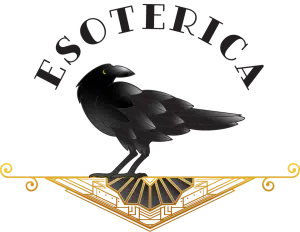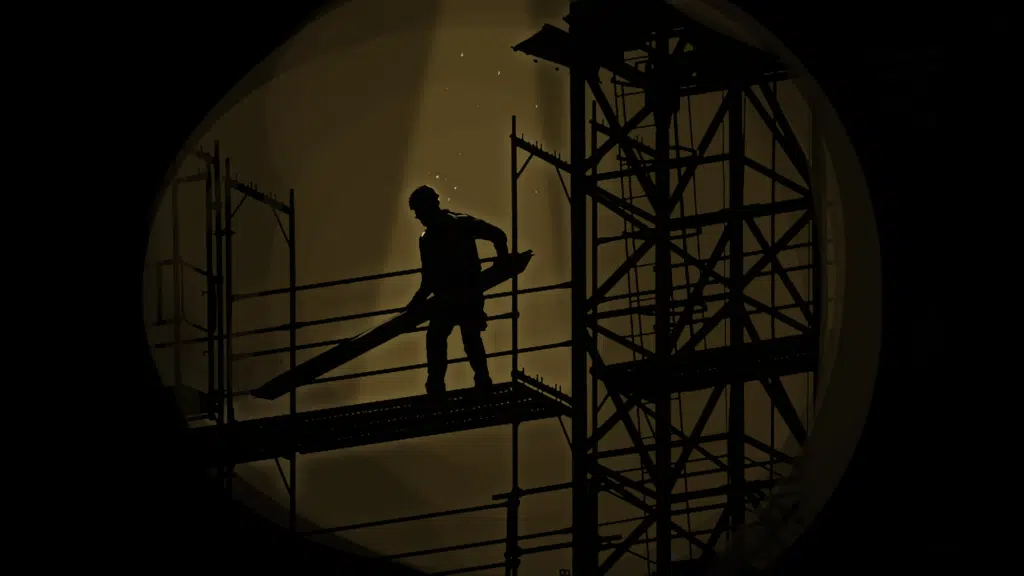By Alex Dako,
He checked his cellphone; he had two missed calls and a text message that read: “hey man… I need your muscles at my house for a few hours lol. Give me a shout.” He stuffed his phone into his pocket.
More money, but it would have to wait.
He leaned down on the jackhammer as it rattled between his clenched fists, punching holes across the floor. The mortar trembled from the metallic clap of the pistons firing, and the tile cracked, spitting incoming debris at his eyes.
Where’s my safety glasses?
Finally, when his hands began to ache, he knew it was time for a garbage run. He flicked the jackhammer’s OFF switch with his thumb, and it hissed with a sigh as he let it rest on the floor. Somewhere he heard a dog barking.
Grabbing his short-handed shovel, he stabbed its lip into the pile of broken tile and began filling the garbage pail beside him. Sweat dripped from his face, through the filter of his dust-mask. It was useless to try and wipe it when it ran so steadily, so he breathed it — hard, spraying a pattern of droplets across his shovel.
She’ll be on me for support tomorrow and I only have enough change to get me home — unless I finish this job today. I need to finish this job today.
The hair on his arms were caked with dust and sweat as he lifted the pail by its ears, groaning through the house, out of the front entrance. In the driveway sat the forty-yard container that he had filled with the house’s kitchen walls the week before. He marvelled at it for a moment, before squatting low, and tossing the up-turned pail inside.
The front porch was high enough for him to climb up onto a few broken sheets of drywall within the container. Emptying the debris, he felt the weight slide out from the pail. He patted its sides as it coughed out more dust, covering his shirt and jeans. He could feel the eyes observing him; standing in the container, fumbling his footing over splintered two-by-fours and snapped cabinetry.
Where he belongs. Black skin in the jungle. Is he even black? Monkey on a porch. Slave-work.
He took a deep breath. He felt it from the watchful neighbours. The people that passed him on the sidewalk kept their eyes forward, their dogs pulling them eagerly up the street. He took another deep breath, careful not to make a mess on the interlock driveway as he climbed out.
The owners seemed like good people, but this part of the city was known for its upper-class standards. Everything had the same appearance: four story houses, beautiful cars, decorative gardens — I mean, it’s what most people worked for. Hell, it’s what most people lived for.
He caught his breath before going in, noticing the garden of sunflowers. He was sick of seeing sunflowers, yet he noticed them anyway. His ex had loved them, and they’d had a garden similar. He imagined their daughter Brienna running to the door, yelling, “Daddy! Daddy!”
In those boots that were too big for her. How she would leap out of them and into my arms on the days I was able to pick her up… I wonder if it would always have to be like this.
I don’t remember seeing my father much when I was younger, even though you could spot him anywhere; thick dreadlocks, exotic and baggy clothes. He worked as a cook at the same restaurant for most of his life. He never did talk much about it, though. Eventually, as he got older, they told him not to come in anymore. First they cut his shifts, telling him it was the times — the way things were in the economy.
Then they waited him out, month after month, which turned into year after year. He never learned how to spend the time he had for himself. All he knew was work. And that’s what killed him, I think. And he died with nothing.
When he got back to the pile and his shovel he adjusted his mask, letting the compressed air fall from his lungs. Breathing in deep, he filled his belly with oxygen, feeling the blood pour into his legs and lower-back. After filling and carrying over a dozen loads — pail after pail — the pile that seemed big to him before was now nothing but a shovelful of powder on the plywood subfloor.
He stood by the window, a breeze drying the sweat on his skin. He unzipped his backpack sitting on top of the sill beside him. For lunch: two hard-boiled eggs, a banana, a handful of peanuts and a small cooler of water. He tipped the cooler’s spout to his lips, savouring each mouthful. With his gloved hand, he wiped his forearm, smudging the dust across his tattoo. He poured the spout over his arm, the water cold as the black ink burned into focus.
Brienna, my love.
He took another gulp from his cooler, then, lifting the jackhammer by the handle with two fingers, he thumbed it to life. The surge of force shook his bones, shivering its way up his shoulders.
Brienna, my love.
He used the earbuds hanging around his neck, and with his free hand, increased the volume of his cellphone to maximum. As a saxophone screeched into his ears, it made little difference over the rattle of the jackhammer.
Will it always have to be like this?
He blinked through the haze of dust trapped by the plastic that was taped over the entrances, confining him in the kitchen. Within an hour, the rest of the floor was in pieces. He silenced the jackhammer, picked up his shovel, and worked steadily. He forced each muffled breath down deep into his belly. Sweat fell freely again, pooling at the button of his jeans before soaking into his underwear. After another hour or so, he swept up what was left of the room before stepping outside to shake himself off. The dust popped off of his shirt as he flailed it into the wind. He threw his mask and his gloves down onto the lawn, wiping his arms and face, plugging each nostril one at a time, snorting out whatever made it through.
Job done.
Breathing in deep, the clean air sweet in his lungs, he swallowed another mouthful of water before dumping the rest over his head, letting it spill down onto the driveway below. A sudden shiver shook through his body, rattling within his chest. Looking up to the sun, burning bright against his eyes, he felt the sudden silence that fell over the neighbourhood, the sky so cloudless and blue. There were no dogs barking. Not even the usual hum of traffic.
He walked to the foot of the driveway, his chest bare, his skin filthy. The sidewalks sparkled like diamonds in the sultry heat of Summer.
Alex Dako, a Canadian writer and poet residing in Niagara Falls, Ontario, is a former columnist for the Niagara Falls Review Editorial Board, with poetry appearing in the Night Picnic Press, Daffodils: A Poetry Chapbook, and The Stirling Spoon Literary Journal. He is a single father, and enjoys spending his time listening to music, shadowboxing, or rereading the classics.

